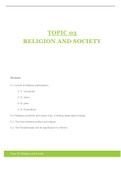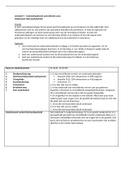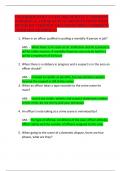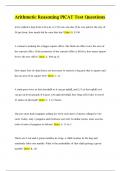Summary
Summary Classical Civilisation: Greek Religion- Topic 3, Religion and Society
- Course
- Institution
This document summarises the 3rd topic of your Greek religion module which is 'Religion and Society'. This discusses religion in Ancient Greece from small scale, household religion, to national and international religion. It gives key words and terminology which really help to boost your exam into ...
[Show more]











